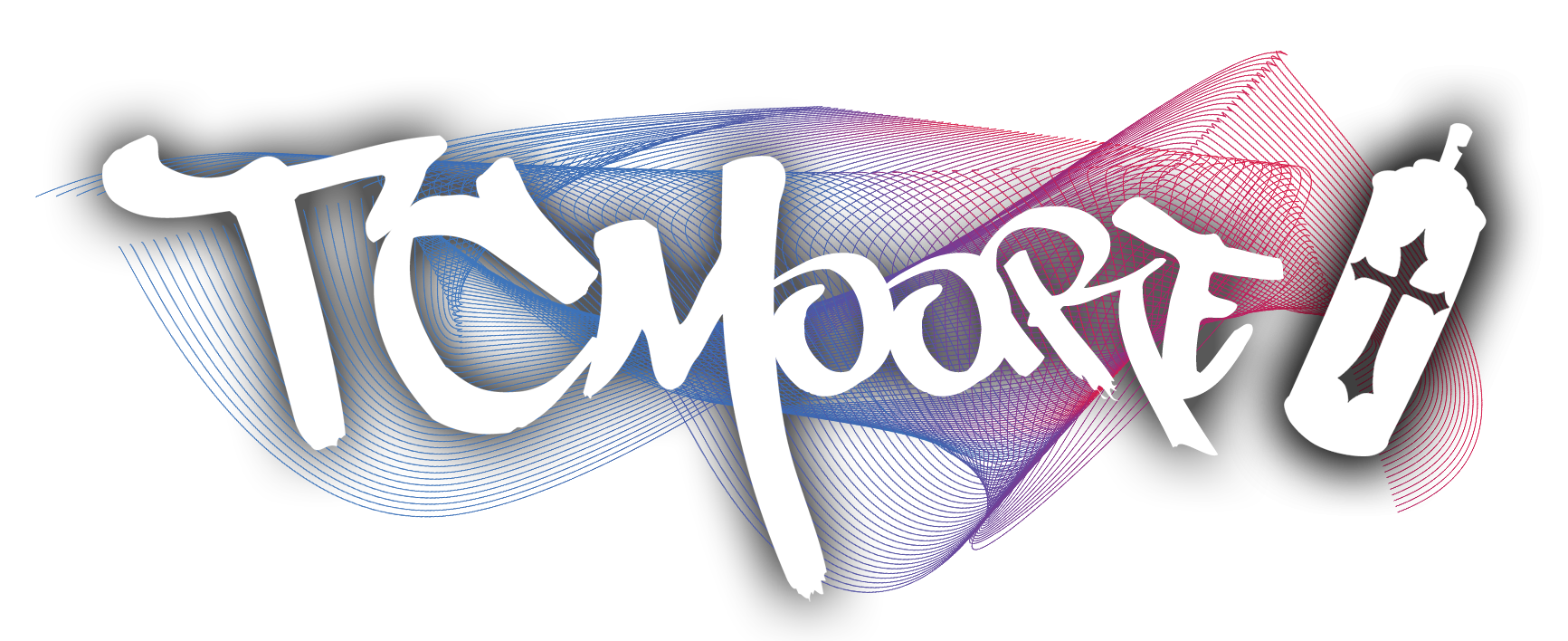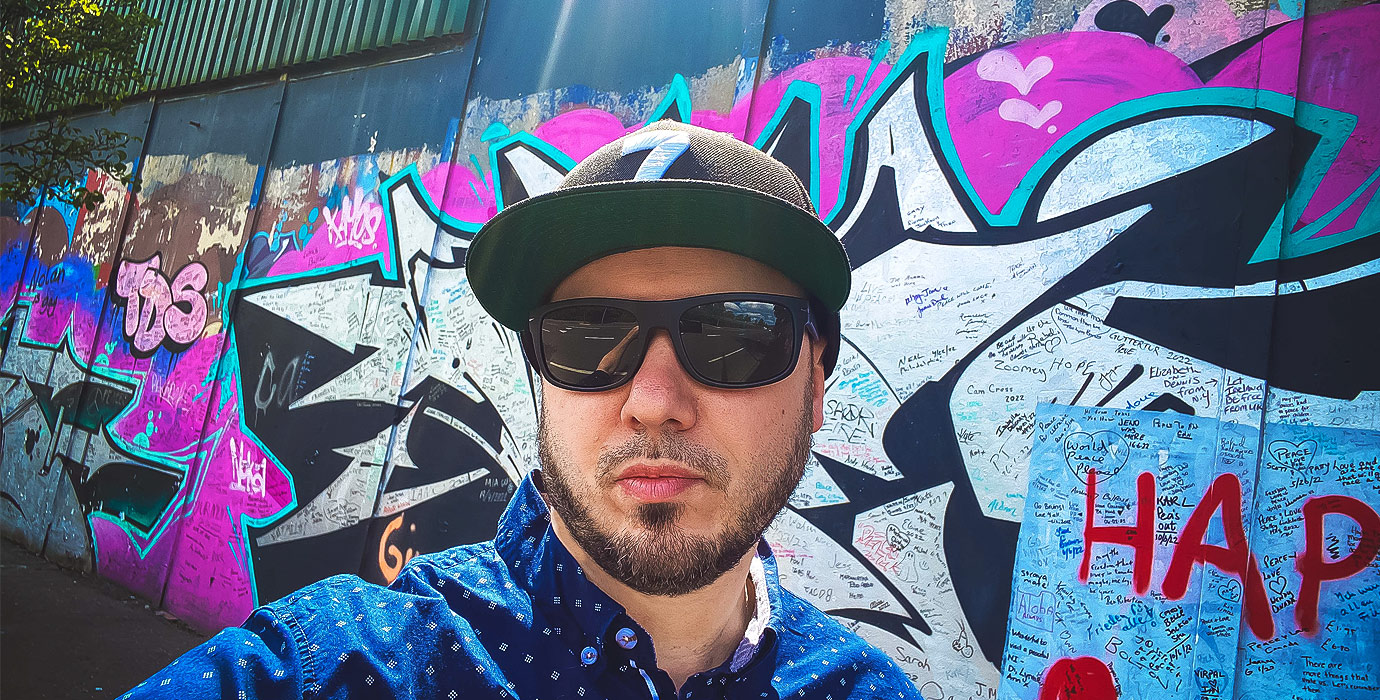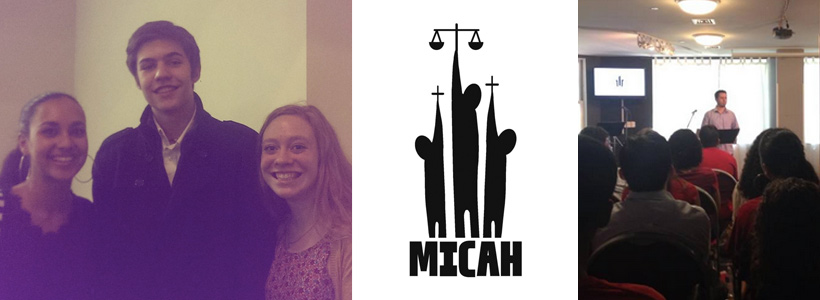
Last week I was honored to be one of the keynote speakers at the
2014 Micah Conference held at Park Street Church by the Trinity Institute for Leadership and Social Justice of Boston Trinity Academy.
The Micah Conference is a student-led, student-planned conference for young, urban, Christian leaders. It exists to help teens explore the connection between their faith, social justice, and leadership.

The theme of the first day of the conference was "Personal," so I shared some of my story. In all of our stories there are what Wes Moore calls "inflection points": moments of decision that change the course of our lives. In his book,
The Other Wes Moore, he explores the inflection points that changed the courses of both his life and another African American young man from the same part of Baltimore, at around the same time, with the same name. As he says, "The chilling truth is that his story could have been mind. The tragedy is that my story could have been his."
When we consider the immense complexity of the world these students are seeking to affect, the task can seem overwhelming. And our own lives are also complex. I encouraged the students by telling them that in my own life I've found that the simple practice of learning about justice from non-white mentors in a posture of humility has had a disproportionate impact on how I live out my faith. And that impact has had ripple effects for the communities I've served.
Non-white mentors have provided me with the lenses to see systemic injustice and institutional racism—not just personal prejudice. Non-white mentors have opened my eyes to the holistic needs of human beings—and the holistic nature of the Christian good news.
I believe
Dr. Soong-Chan Rah is correct when he says,
"If you are a missionary preparing to go overseas and you’ve never had a non-white mentor, you are not a missionary, you are a colonialist."
And I would apply the same principle to justice work in the North American context. If white urban ministers have not had non-white mentors, they will perpetuate and impose the cultural assumptions they have upon those they serve. That is why one of the guiding principles of the
Christian Community Development Association (CCDA) has been this ancient Chinese proverb:
"Go to the people
Live among them
Learn from them
Love them
Start with what they know
Build on what they have:
But of the best leaders When their task is done
The people will remark "We have done it ourselves."
This is how ministry follows the incarnational model Jesus confers to his disciples. We are called not to serve as leaders, but to lead as servants. And that is why a conference designed to explore the intersections of faith and justice is named the "Micah" conference.
"He has shown you, O mortal, what is good.
And what does the Lord require of you?
To act justly and to love mercy
and to walk humbly with your God."
- Micah 6.8 NIV
My heart-felt thanks goes out to the entire planning team of the 2014 Micah conference for inviting me to share. It was an honor and a blast.
 Last week I was honored to be one of the keynote speakers at the 2014 Micah Conference held at Park Street Church by the Trinity Institute for Leadership and Social Justice of Boston Trinity Academy.
The Micah Conference is a student-led, student-planned conference for young, urban, Christian leaders. It exists to help teens explore the connection between their faith, social justice, and leadership.
Last week I was honored to be one of the keynote speakers at the 2014 Micah Conference held at Park Street Church by the Trinity Institute for Leadership and Social Justice of Boston Trinity Academy.
The Micah Conference is a student-led, student-planned conference for young, urban, Christian leaders. It exists to help teens explore the connection between their faith, social justice, and leadership.
 The theme of the first day of the conference was "Personal," so I shared some of my story. In all of our stories there are what Wes Moore calls "inflection points": moments of decision that change the course of our lives. In his book, The Other Wes Moore, he explores the inflection points that changed the courses of both his life and another African American young man from the same part of Baltimore, at around the same time, with the same name. As he says, "The chilling truth is that his story could have been mind. The tragedy is that my story could have been his."
When we consider the immense complexity of the world these students are seeking to affect, the task can seem overwhelming. And our own lives are also complex. I encouraged the students by telling them that in my own life I've found that the simple practice of learning about justice from non-white mentors in a posture of humility has had a disproportionate impact on how I live out my faith. And that impact has had ripple effects for the communities I've served.
Non-white mentors have provided me with the lenses to see systemic injustice and institutional racism—not just personal prejudice. Non-white mentors have opened my eyes to the holistic needs of human beings—and the holistic nature of the Christian good news.
I believe Dr. Soong-Chan Rah is correct when he says,
The theme of the first day of the conference was "Personal," so I shared some of my story. In all of our stories there are what Wes Moore calls "inflection points": moments of decision that change the course of our lives. In his book, The Other Wes Moore, he explores the inflection points that changed the courses of both his life and another African American young man from the same part of Baltimore, at around the same time, with the same name. As he says, "The chilling truth is that his story could have been mind. The tragedy is that my story could have been his."
When we consider the immense complexity of the world these students are seeking to affect, the task can seem overwhelming. And our own lives are also complex. I encouraged the students by telling them that in my own life I've found that the simple practice of learning about justice from non-white mentors in a posture of humility has had a disproportionate impact on how I live out my faith. And that impact has had ripple effects for the communities I've served.
Non-white mentors have provided me with the lenses to see systemic injustice and institutional racism—not just personal prejudice. Non-white mentors have opened my eyes to the holistic needs of human beings—and the holistic nature of the Christian good news.
I believe Dr. Soong-Chan Rah is correct when he says,


